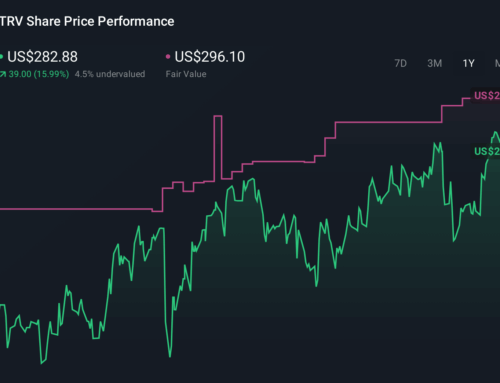Trump ‘Revenge’ Tax Would Cut Foreign Investment, Congressional Panel Says
May 30, 2025
In This Article:
(Bloomberg) — Congress’s own official tax scorekeeper is predicting a “revenge” tax buried in Donald Trump’s massive fiscal package would realize Wall Street’s fears and drive foreign investors away from US markets.
Most Read from Bloomberg
-
NYC Congestion Toll Brings In $216 Million in First Four Months
-
Now With Colorful Blocks, Tirana’s Pyramid Represents a Changing Albania
-
Billionaire Steve Cohen Wants NY to Expand Taxpayer-Backed Ferry
Advertisement: High Yield Savings Offers
Powered by Money.com – Yahoo may earn commission from the links above.
The item — introduced in legislation that passed the House last week as Section 899 — would increase tax rates for individuals and companies from countries whose tax policies the US deems “discriminatory.” This includes raising tax rates on passive income, such as interest and dividends, earned by investors who are potentially sitting on trillions in American assets.
Wall Street analysts are warning the provision would create another disincentive for foreign investors at a time when their once ironclad confidence in Treasury bonds and other US assets has already been shaken by Trump’s erratic trade policies and the nation’s deteriorating fiscal accounts.
Congress’s nonpartisan Joint Committee on Taxation, charged with producing official revenue forecasts for the legislation, assessed it would lead to a “decline in foreign demand for US direct and portfolio investment” and “general avoidance and compliance behavior” by foreign companies in response to the retaliatory taxes, Thomas Barthold, the JCT’s chief of staff, said in a statement to Bloomberg Tax in response to questions about the committee’s estimates.
As a result of that, and its effects on US tax receipts and US asset values, revenues from the proposal are projected to decline beginning in 2028 and turn into a loss in the last years of the 10-year budget window that the JCT examined, Barthold told Bloomberg Tax.
The JCT has estimated the provision will bring in $116.3 billion in revenue over the next 10 years. But the committee projected it would ultimately lower annual US tax revenues by $12.9 billion in 2033 and 2034.
Barthold said the reduced profitability of foreign-headquartered companies would reduce baseline US tax receipts. He added that lower foreign demand for US investment would also reduce US asset values. Those effects “dominate” the revenues collected under the retaliatory tax plan in the last years of the 10-year window, leading to the revenue loss, he said.
For now, the market reaction to Section 899 appears muted at best. Still, US assets as a whole have been underperformers this year as Trump’s policies put a dent in the narrative of the “America exceptionalism.”
Long-term Treasury yields have catapulted higher this year and the value of the US dollar has dropped by about 7%, according to the Bloomberg Dollar Index. Moody’s Ratings downgrade of the US government’s credit rating this month has also added to a ‘Sell America’ trade.
Foreign investment in US long-term securities, including stocks and bonds, amounts to around $31 trillion. And while foreign accounts’ share of US Treasury debt has slid in the last decade, they still hold about a third of the near $29 trillion outstanding.
“A foreign tax provision in the One Big Beautiful Bill Act is alarming,” wrote Elias Haddad, a strategist at Brown Brothers Harriman & Co. in a note. “If the bill as presently written takes effect, it would deter foreign investment in US assets at a time when the country faces increasing reliance on foreign capital to finance its ballooning debt.”
House Ways and Means Committee Chair Jason Smith, whose committee handled the measure’s tax components, said he hopes the provision will serve as a deterrent to foreign governments and won’t be deployed.
He described the provision as an effective tool for retaliating against countries that try to crack down on US businesses.
“A big concern is that foreign governments, based on agreements entered by the Biden administration, is trying to suck away billions of dollars from US companies,” Smith said during a panel in California, referring to countries that are seeking to impose digital services taxes on large technology companies such as Meta Platforms Inc. and Alphabet Inc.’s Google. “In fact, $120 billion from US companies. This is a way to help put them in check so that they understand if they do that to US businesses, there will be consequences for their actions.”
Smith added the tax writers are hoping that punitive tax rate in Section 899 isn’t imposed. “Hopefully it’ll never take effect,” Smith said.
The Trump tax provision would boost the federal income tax rate on passive US income earned by investors and institutions based in the targeted countries, first by 5 percentage points, then rising by another five points each year to a maximum of 20 points above the statutory rate.
Most Read from Bloomberg Businessweek
-
YouTube Is Swallowing TV Whole, and It’s Coming for the Sitcom
-
Millions of Americans Are Obsessed With This Japanese Barbecue Sauce
-
Mark Zuckerberg Loves MAGA Now. Will MAGA Ever Love Him Back?
-
Will Small Business Owners Knock Down Trump’s Mighty Tariffs?
©2025 Bloomberg L.P.
Terms and Privacy Policy
Search
RECENT PRESS RELEASES
Related Post



